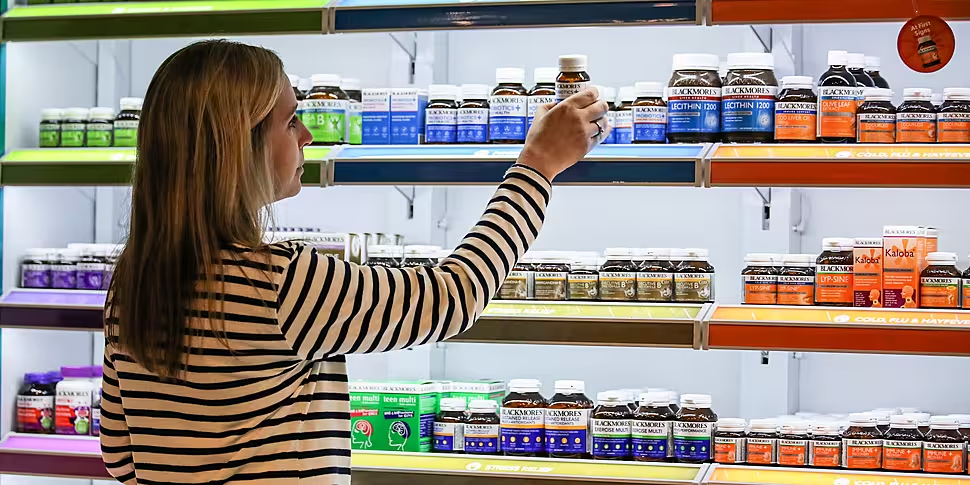The health and wellness industry is a multi-billion euro operation, but some areas such as supplements are unregulated.
Supplements can be marketed using various claims about the positive impact they can have on people's health.
However, many have no demonstrable effects other than lightening your wallet.
Professor John Nolan from Waterford Institute of Technology found that 65% of the supplements he tested did not live up to their health claims.
He joined Alive and Kicking with Clare McKenna to discuss his research and outline his mission to bring certification and regulation to the sector.
His work focuses on how nutrients that live in the back of the eye, or the macula, are protectors for a disease called macular degeneration.
By being able to measure these nutrients, his team saw that when they looked at various supplements that are on the market, they did not meet their label claims.
"In terms of the regulation, there's a lot in terms of what a company is allowed say that an active ingredient can or cannot do," Professor Nolan said.
"Where there are no regulations as I see it is in terms of the actual ingredients.
"Do the products that are on sale in the pharmacies or the doctors' clinics actually contain the active ingredients, and who has measured and verified those?
"There seems to be a gap in terms of that kind of regulation and this is really bad for the consumer because if you look at the work we've done, there are actually very few products out there that have been tested in terms of how well they work.
"Do they help patients or help people improve their vision, but there's certainly very little work, if any, being done in measuring the active ingredients."
Professor Nolan gave the example of if you are paying for an active ingredient that contains 10 milligrams of the active component, it should be queried whether the product actually contains those 10 milligrams as that is what the consumer is entitled to.
 File photo. Credit: Robert Michael/dpa-Zentralbild/dpa
File photo. Credit: Robert Michael/dpa-Zentralbild/dpaHe continued: "What we've seen is that over 65% of the nutrients we measured, these are nutrients called carotenoids that are plant-based pigments working and protecting us in our eye, over 65% of the products we've tested do not meet their label claim.
"It gets even worse, we see with the products that don't meet their label claims is that over a very short period of time, the active components degenerate and this is because of bad formulations.
"The movement we want to do here is to provide an ethical standard, an ethical quality that allows the consumer, when he or she purchases a product, to at least get what they're paying for.
"You wouldn't be happy coming home from a supermarket after paying for six eggs and only having five in a pack."
Over 20 years of research, Professor Nolan and his colleagues established that by enriching patients with macular degeneration, it reduces their risk of going blind.
He added: "Knowing that, thereafter, it's really important that we have a quality of supplement that's out there, because if a patient is consuming a supplement that doesn't have the ingredient or the active components, it's not going to have any of the benefits that we've been able to demonstrate through our science or research.
"That's truly not acceptable, so we have a problem in what I would say is an underregulated situation because these nutrients are not viewed as medicines."









